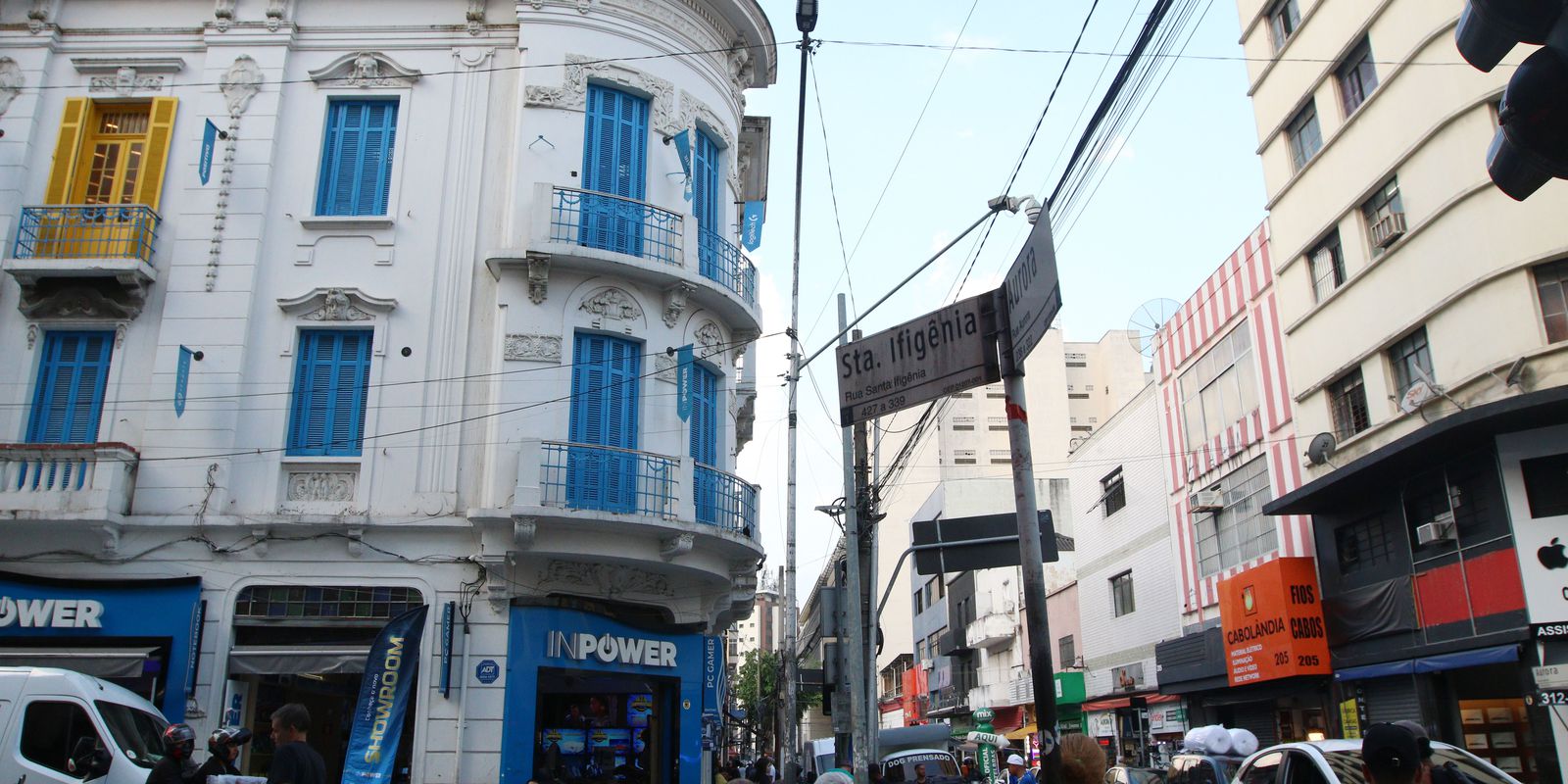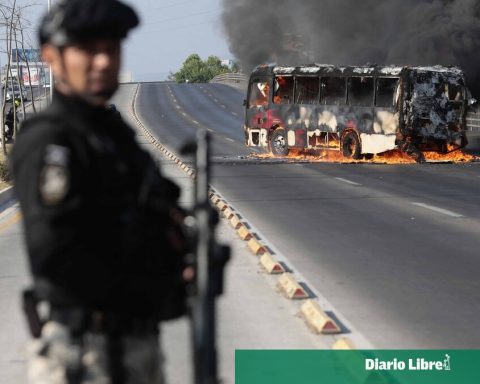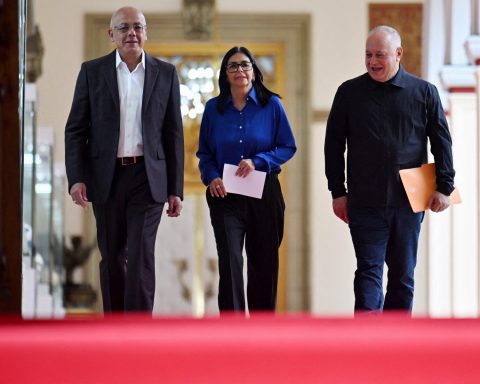Entities that carry out social work in the region of Cracolândia, in the center of the capital of São Paulo, are asking the federal government to take over the implementation of programs for the care of chemical dependents who live in the territory. According to the entities, the projects of the city hall and the government of the state of São Paulo are not giving results and accumulate complaints of human rights violations.
In the last week, nine entities, including the É de Lei Coexistence Center, Craco Resiste and the Adesaf Institute (Articulation of Social Technologies and Training Actions) handed over to the chief minister of the Institutional Relations Secretariat, Alexandre Padilha, a document asking direct role of the federal government in the region.
“It is important to emphasize the diagnosis that the interlocutions at the municipal and state level that were attempted were not effective in order to stop the human rights violations that systematically occur in the territory, which is why they understand that direct action by the federal government is necessary in region”, says the text of the document delivered to the minister.
According to the entities, police operations are carried out in the region constantly, with the use of weapons with moral effect even when there is no resistance from the crowded population.
“The use of force in these operations is often indiscriminate and there are reports and images of scenes such as people lying in the rain and over puddles of water for a long time awaiting verification and release.”
According to the document, people injured during operations, hit by rubber bullets or the effect of a fall, do not receive any assistance and are obliged to wait for stops until the end of the police action.
“We have reached the limit of all attempts to denounce and contain the human rights violations that have been taking place. The reason we go to the federal instance is because we have exhausted all possibilities at the municipal and state instances”, highlights the psychiatrist Flávio Falconi, creator of the Ceiling, Work, Treatment project, an entity that also signs the document delivered to the Minister of Institutional Relations.
“Padilha’s involvement is to exert pressure from the point of view of articulation between governments so that they stop violating human rights”, he highlighted. “It’s a problem that won’t be solved by the way it’s being done, and we don’t have anyone else to turn to,” said Falconi, who is also part of the team for the Guidance and Assistance Program for Dependents (Proad), a service linked to to the Department of Psychiatry at the Federal University of São Paulo (Unifesp).
In recent days, after police operations to clear streets in the region, occupied by drug addicts, various looting and raids were registered in the local trade.
The political articulation for access to the minister relied on the office of the state deputy of São Paulo, Eduardo Suplicy (PT), who forwarded the document from the entities by letter to the Secretariat for Institutional Relations. The report sought the city hall and the state government, which have not yet manifested themselves.
federal government program
The entities call for direct action by the federal government in Cracolândia based on the implementation of the Housing First program, currently under development at the Ministry of Human Rights and Citizenship. The project is based on the Housing First program, originally developed in the United States, and already applied in Canada, Australia and some European countries.
The project seeks to face homelessness, before any other measure, by offering permanent housing, integrated with housing, clinical and community reintegration support services. Housing First was also an inspiration for the De Braços Abertos project, used in Cracolândia in São Paulo during the administration of the current Minister of Finance, Fernando Haddad, when he was mayor of the city of São Paulo from 2013 to 2016.
“Housing First is a strategy, with the homeless population, to guarantee housing, access to protected and assisted housing for these highly vulnerable people, as a gateway to other rights”, explained the director for the Promotion of the Rights of the Homeless Population of the Ministry of Human Rights and Citizenship, Leonardo Pinho.
“The idea behind Moradia Primeiro is to take this fundamental step. However, the previous government did not leave any budgetary resources for the homeless population policy. We are in this process of inter-ministerial dialogue to be able to move forward with this agenda. However, with this caveat, that the previous government did not leave any resources for this policy in the federal budget. The budget is zero.
According to Pinho, despite the lack of resources from the federal government for the homeless population in the federal government, the project will be put into practice in Brasilia with resources arising from parliamentary amendments by federal deputies.
“We are now negotiating the last step with the district government. Our expectation is that, in May, we will be able to start the process here. The idea is to start with 100 people, along with a social assistance policy,” he said.
One of the possibilities, in São Paulo, if the federal government succeeds, still in 2023, resources reallocated from other ministries, is to establish partnerships with civil society organizations that already operate in the region.
“There is an initiative that is not from the government, but which has already started, which is Morar Primeiro, with Father Júlio Lancellotti. There is always the possibility of promoting experiences from civil society organizations. The new regulatory framework for civil society organizations allows for direct terms of cooperation [do governo federal] with civil society,” said Pinho.
For the anthropologist and researcher at the University of São Paulo (USP) Amanda Amparo, the federal government has the autonomy to carry out its own program in Cracolândia, without the logic of competition with other projects already active in the territory. “Nothing would challenge the projects that the city hall and the state are doing there. The federal government opens a policy and makes it accessible to people, and people will access it according to their needs, it is not exactly a logic of competition”, she evaluated.
“Just as the state and city hall have already, for many years, worked separately. The city hall works with Redenção, the state has always worked with Recomeço. It is also not a problem to build a bridge, talk, and see how it is possible to have an interlocution between the Powers.”
New welcome center
On the night of this Tuesday (11), the government of the state of São Paulo inaugurated in Cracolândia a new reception center for chemical dependents, the Care Hub on Crack and Other Drugs. According to the state government, the great differential of the new center will be to establish a management protocol suited to the uniqueness of each case, “enhancement of opportunities for the development of a process of convincing and treating the chemical dependent”.
“What we are inaugurating here is public support equipment. A great gateway so that the work of the state, city hall and entities that already work in reception, convincing and referral can have a rearguard of treatment with a wide range of care”, said vice-governor Felicio Ramuth.
According to the government, in the new center there is a wing with capacity for 24-hour reception, medical and clinical risk assessment, with hospitality beds day and night for short-term reception and referral.
The Hub also has a health clinic wing dedicated to detoxification, a center for monitoring the recovery and reinsertion process, as well as multipurpose rooms for mutual help groups, spaces for approach groups from social organizations and support groups for family members.















